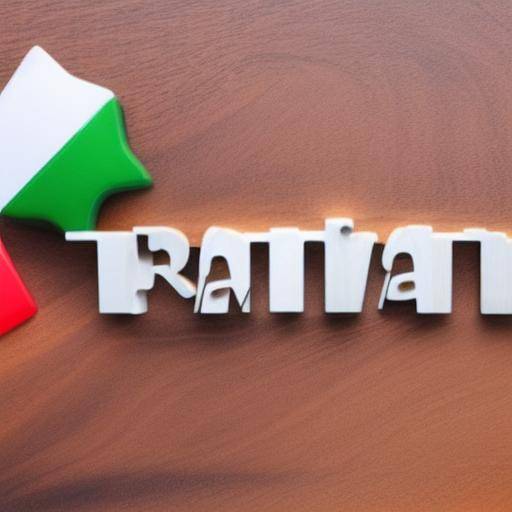
Family finances are the fundamental pillar for the economic well-being of any home. However, the monitoring, adjustment and control of them often goes unnoticed. In this article, we will explore the importance of regularly reviewing family finances, understanding the relevance of monitoring, adjustment and control in this process. We will also provide practical advice, current trends, and expert opinions to optimize family financial management.
What does family finance tracking, adjustment and control mean?
Follow-up to family finances involves recording and analysing the income, expenses, savings, and family debts on a regular basis. The adjustment, on the other hand, is to make changes or adaptations in the family budget based on the results obtained in the financial follow-up. Control refers to the ongoing monitoring and management of finances to maintain the balance and economic stability of the home. These practices are critical to making informed financial decisions and avoiding economic crises.
History and Background of Family Financial Management
Family financial management has been a constant concern throughout history. From ancient civilizations to the modern era, families have sought ways to manage their economic resources efficiently. Over time, the complexity of family finances has increased, with the need to implement monitoring, adjustment and control as key tools to ensure financial stability.
Detailed Analysis of the Importance of Monitoring, Adjustment and Control
Monitoring, adjustment and control of family finances are essential for good budget management. Monitoring allows us to identify expenditure patterns, establish financial priorities and anticipate emergencies. For its part, the adjustment provides the flexibility to adapt the budget to the changing needs of the family, while the control ensures that the established financial objectives are met.
Comprehensive Review of Effective Practices in Family Financial Management
The effective implementation of monitoring, adjustment and control not only provides financial stability, but also promotes responsible financial habits throughout the family. These practices encourage informed decision-making, reduce financial stress and strengthen long-term financial security.
Comparative Analysis of Monitoring, Adjustment and Control Practices
Monitoring, adjustment and control of family finances share the objective of ensuring effective financial management, but differ in their approaches and scopes. While monitoring and control focus on financial assessment and monitoring, the adjustment seeks to adapt the budget according to the findings of the follow-up, thus maintaining a sustainable financial balance.
Practical Tips and Guidelines for Implementing Monitoring, Adjustment and Control
- Conduct detailed monthly tracking of income and expenditure.
- Adjust the budget regularly based on the changing needs of the family.
- Maintain rigorous control of unplanned expenditures to avoid deviations in the budget.
Opinions of Experts and Future Trends in Family Financial Management
According to family finance experts, the development of digital applications and platforms has facilitated the monitoring and control of finances, allowing a more detailed and accurate analysis of financial data. These trends are expected to continue in the future, providing new tools and approaches for family financial management.
Case Studies and Applications Follow-up, Adjustment and Control Practices
Real cases of families that have successfully implemented follow-up, adjustment and control in their finances will be presented, highlighting the benefits and learning acquired. These cases will provide concrete examples of how these practices can positively impact a family's financial stability.
Future Trends and Predictions in Family Financial Management
Financial experts predict that technology will continue to play a key role in family financial management. Artificial intelligence and predictive analysis are expected to provide more advanced tools for family finance monitoring, adjustment and control, thus helping families achieve their financial goals more efficiently.
Conclusion
In conclusion, the monitoring, adjustment and control of family finances are key practices in ensuring the economic stability of the home. These tools allow more effective management of financial resources, promoting responsible habits and making informed decisions. Implementing follow-up, adjustment and control proactively can make a big difference in the financial health of a long-term family.
Frequently asked questions
**1. Why is it important to regularly track family finances?**Regular follow-up allows us to identify expenditure patterns, establish financial priorities and anticipate emergencies, which contributes to more effective management of family financial resources.
**2. When is the right time to adjust the family budget?**The family budget should be adjusted when significant changes are made in the income, expenses or financial priorities of the family, thus ensuring that the budget is adapted to changing needs.
**3. How does family finance control affect financial decision-making?**Control of family finance provides a clear and up-to-date view of the financial situation, enabling informed financial decisions and avoiding economic crises.
**4. Is it necessary to use technological tools to track, adjust and control family finances?**While technology tools can facilitate the process, monitoring, adjustment and control of family finances can also be carried out manually with the use of spreadsheets or simply by noting income and expenditure in a notebook.
**5. What long-term benefits can be expected when implementing family finance monitoring, adjustment and control?**The implementation of these practices promotes responsible financial habits, reduces financial stress, and strengthens the family's long-term financial security, enabling more effective financial goals.
**6. What are future trends in family financial management?**Future trends include the use of more advanced technological tools, such as artificial intelligence and predictive analysis, which will provide new ways of tracking, adjusting and controlling family finance more efficiently.
With a proactive approach to family finance monitoring, adjustment and control, families can build a path to economic stability and the realization of their financial goals. Remember that the effective management of family finances is a long-term investment in the economic and emotional well-being of your family.






















































